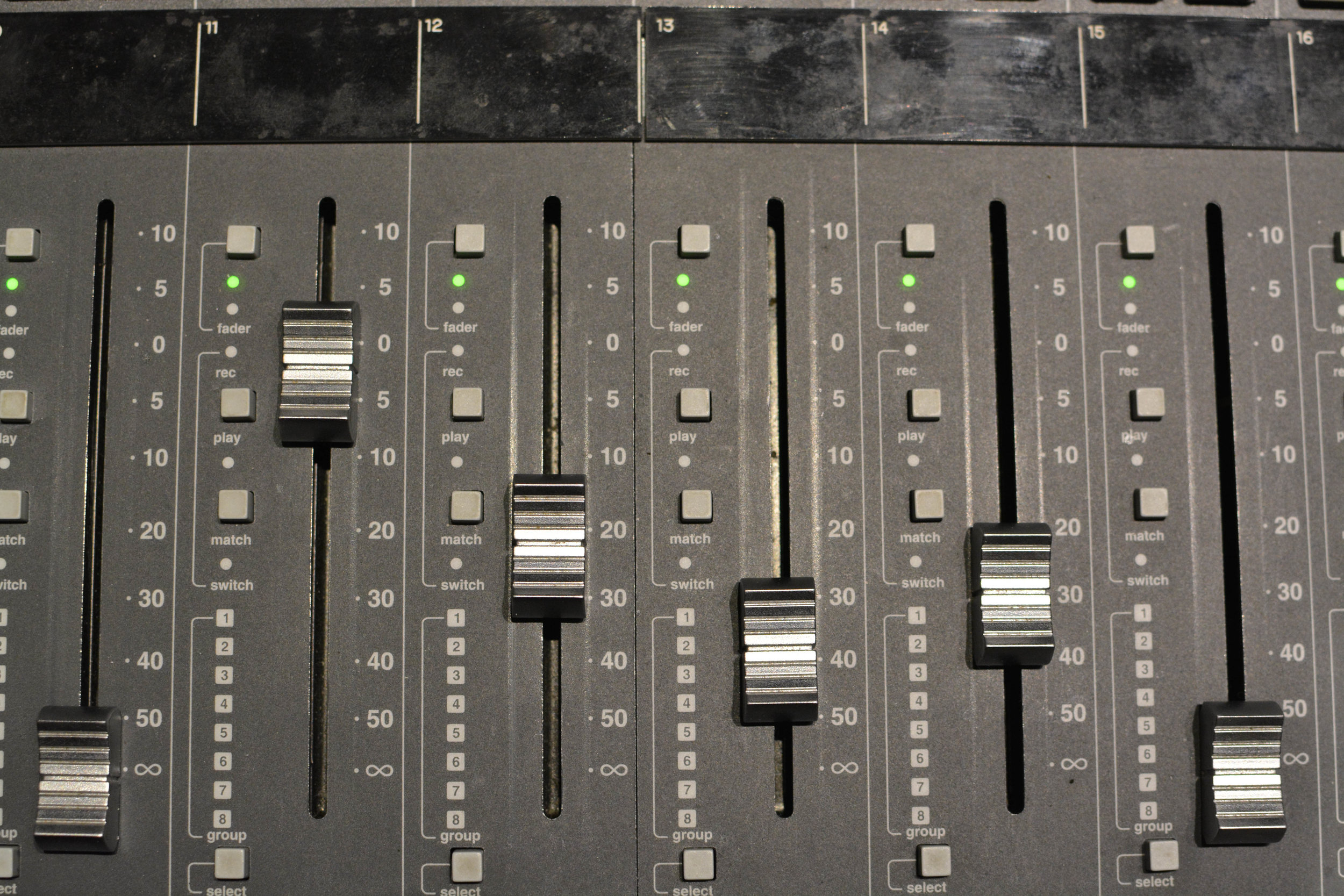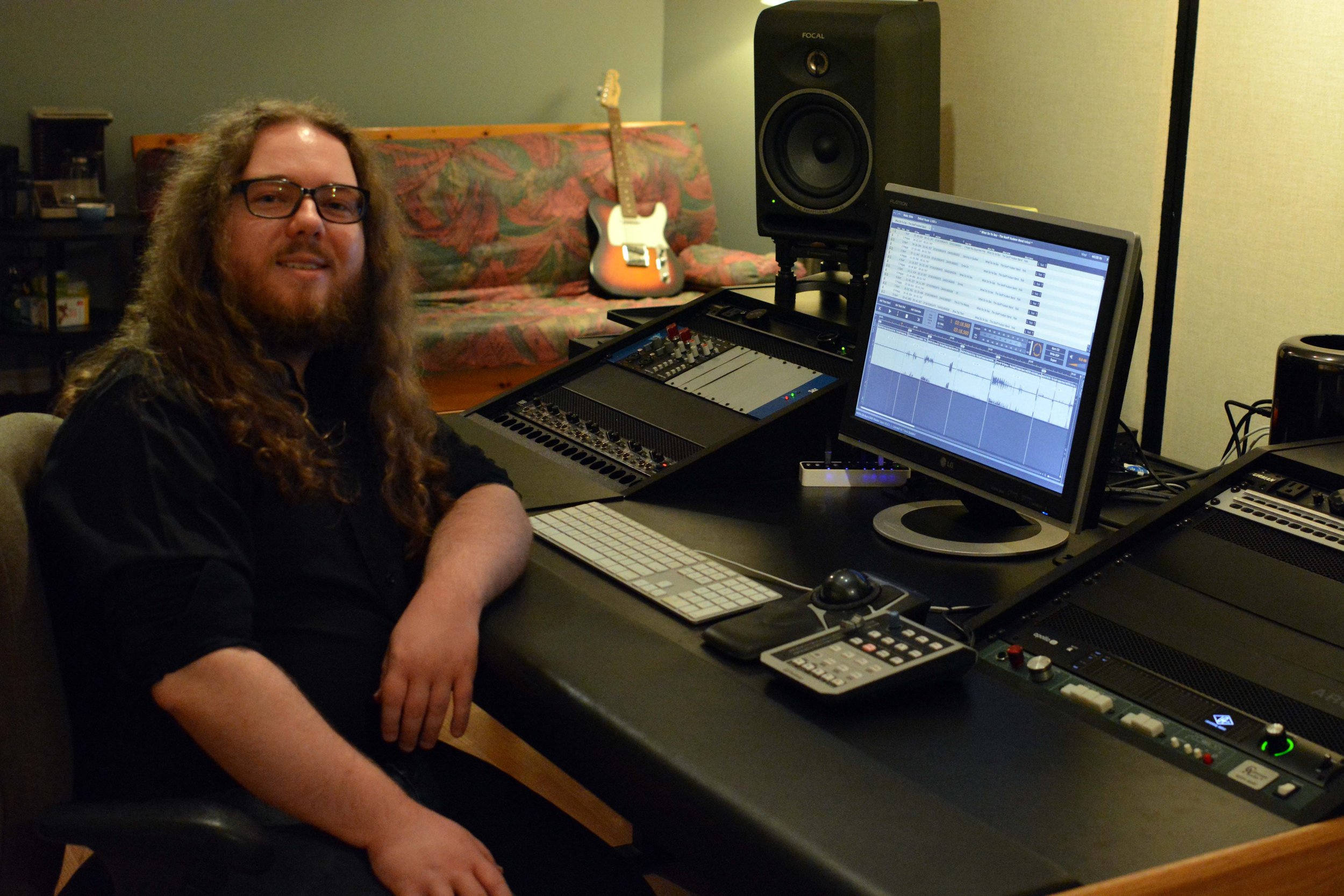The Importance of Studio Instruments
/In this age of tighter budgets, many home studios and even smaller professional studios are beginning to forego providing studio instruments. After all, studios are expensive to build and maintain and often it’s hard to justify buying a piece of gear that the musician will bring, right? Wrong. Read on and see why the studio instrument isn’t a dead trend.
Ensuring Quality
Knowing your gear well gives you tone you can stand behind as an engineer.
You need other studio instruments for the same reason you need a studio drum kit: it ensures quality. Almost all professional studios have a studio kit. The engineer knows exactly where in the room that kit sounds the best, knows how to mic it, and keeps it properly maintained so that it always sounds great. It works the exact same way with guitars, basses, and amps. Having instruments at your studio that you are familiar with will mean that no matter what the circumstances are, you will always be able to get a great sound with minimal time spent experimenting, testing and comparing. This helps to ensure that the finished product sounds good and that in turn makes your clients happy and makes you stand out as an engineer.
Predictability
You never really know what a client is going to show up to your studio with when they come to track their parts. Many musicians have incredible instruments that will easily win out over your studio’s instrument collection, but some won’t. This goes double for anyone who might be doing hobbyist or semi-pro work from a home studio, since many of the musicians you record may not have high-end equipment. Nothing is worse than trying to make someone’s 15W solid-state practice amp sound like a Marshall half-stack. It simply will not happen no matter how much time you spend on it in the mix. Certain instruments also have a unique sound that’s tough to recreate in any other way, like the tremolo and spring reverb circuits on Fender amps, and having these on hand to contribute to a project is sometimes the perfect finishing touch for a song that just doesn’t feel complete yet.
Regular maintenance is an IMPORTANT part of keeping your studio instruments in top shape
Reliability
This goes hand-in-hand with the above. Provided that you maintain your studio instruments properly, you know that they will always be in top condition and therefore sounding their best. Using properly maintained instruments and amplifiers greatly reduces the risk of equipment failure during a session, which costs you time and money. For stringed instruments, this means regularly checking the intonation and neck action to ensure they are always ready to use. Drums should be kept tuned (they can always be re-tuned as necessary for a specific project) and all hardware should be functional. For amplifiers, I recommend keeping spare fuses and at least one spare set of tubes on hand at all times, and cleaning out the pots with contact cleaner as soon as they start to crackle. In many cases, clients will bring their own instruments and you will probably use them, but in the event that a client’s equipment fails you know that you will always have your own studio instruments as a fall back.
Convenience
Ultimately, the recording studio business is a service industry and as an engineer you have to treat it as such if you want to succeed. Client satisfaction matters and when a client can walk in, pick up a great instrument, and start recording, it makes for a smooth session. A client walking out of your studio saying “that was easy” can translate into recommendations and testimonials, which in turn attracts more clients. Providing an all-in-one solution to clients seems to be one of the best studio business model these days and having high-quality instruments can make for a strong selling point when advertising.
My Recommendations
One of my favourite studio amps: the Fender '68 Custom Princeton Reverb.
It’s a common misconception that your studio instruments have to be fancy and expensive. The key factors here are versatility, sound quality, and playability. In many cases, simple is better. With guitars, entry-level American-made models like the Fender American Special Stratocaster or Gibson Les Paul Studio fulfill the role of a studio instrument well without breaking the bank. Amps should ideally be either a head and cabinet design, or a combo amp with multiple speakers, and established brand names like Fender, Vox, or Marshall tend to be the most desirable. One of my personal favourites on the amp front is the Fender Custom ’68 reissue line, which I find to be a very versatile and modern take on the classic Fender sound.
Don’t forget that you can take these instruments out and gig with them too, or use instruments you already own as a studio instrument. This is often the best route if you already own a great sounding drum kit/guitar/amp or if you’re just starting out and don’t have many paying clients yet. However, if you’ve got to the point where you generate a significant percentage of your income from your home studio I would highly recommend getting dedicated studio instruments. It’s a small price to pay for consistently great sounds and client satisfaction.




